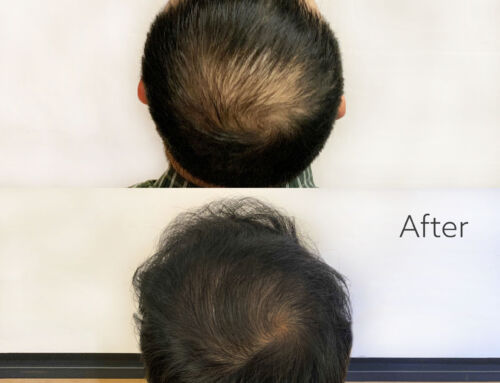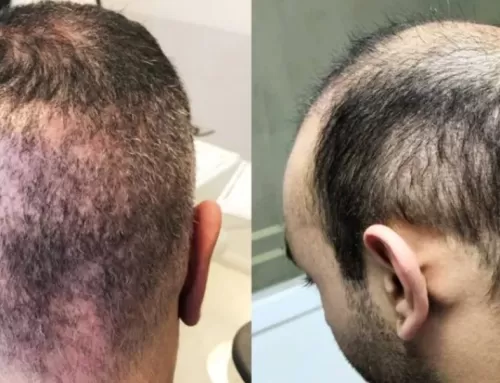Alopecia is the general term for any type of hair loss, which is often seen as people (especially men) age. However, alopecia areata is a specific type of hair loss that is caused by disease, regardless of sex or age. Although the effects vary among people, any degree of hair loss can be a strong source of embarrassment and frustration, especially for someone who is not expecting it. Sadly, there is no definitive cure for the disease itself, but there are ways to slow or even counteract its effects.
If you have been diagnosed with alopecia areata or suspect you may have it, our Boston hair restoration center is ready to assist you. Through one or more of our hair loss treatment techniques, you can regain control over one of your most defining features.
What Is Alopecia Areata?
Alopecia areata is an autoimmune disease that affects the body’s hair follicles, usually those located on the scalp. The disease incorrectly targets the follicles as harmful, thus causing them to cease hair growth. The areas affected by alopecia areata vary in size, ranging from patches of hair the size of a quarter to complete baldness. The effects may be temporary, resolving within a year, or they may be permanent. Although the disease is not known to cause any risk to one’s health, sudden hair loss can result in shock and distress, leading people to seek methods of treatment.
Non-Surgical Treatment Options
There two types of drugs that are typically used in the treatment of alopecia areata, both of which are available at our clinic. One drug, commonly known as Rogaine®, has historically been used for male pattern baldness, but has also shown efficacy in treating this condition. Rogaine® is applied topically to the scalp on a daily basis, with treatment usually lasting weeks or months in order to fully see its effects. When it is successful, patients may benefit from thicker hair or reduced hair loss, while others report growing new hair back.
Another drug, Propecia®, is an anti-inflammatory that is traditionally used to combat autoimmune diseases. By taking this medication orally, topically, or as an injection, men can slow their hair loss or increase hair growth. Due to its interaction with the body’s hormones, Propecia® is only available to male patients.
In lieu of these drugs or in conjunction with them, patients may wish to undergo laser hair therapy. In laser therapy, an infrared light is used on the scalp to stimulate blood flow and thus follicle growth. Because it is a “cold laser” that utilizes very low wavelengths, therapy is not painful and has no documented side effects.
Will a Hair Transplant Help?
Normally, when a patient is looking to correct hair loss, a transplant is a good way to achieve a full head of hair once more. Unfortunately, alopecia areata is an exception to this rule. When we perform a hair transplant, the goal is to move hair follicles, either individually or as a group, to another area of the head. But because the condition targets these follicles, it does not matter where on the scalp they are – they will still likely be affected. As a result, hair transplants are rarely recommended for alopecia areata.
Hope for the Future
Even when a person suffers from alopecia areata for years, there is still a chance that he or she will grow hair back. This is because the stem cells within hair follicles are still alive, which in turn can lead to the regeneration of hair. This sometimes happens on its own, as the disease may fade, but it is beginning to look like these stem cells can also be “activated” through human intervention. By studying stem cells at our restoration center, we hope to unlock the key to this puzzle, allowing us to better control the rate of hair growth for our patients. With continued support, it is only a matter of time until there really is a cure for alopecia areata.
Stop Your Hair Loss Today
There may a few standard practices for stopping hair loss and stimulating regrowth, but no one treatment should be considered for everyone. Schedule a consultation at our hair loss center to learn which treatment method is most suitable for you.






